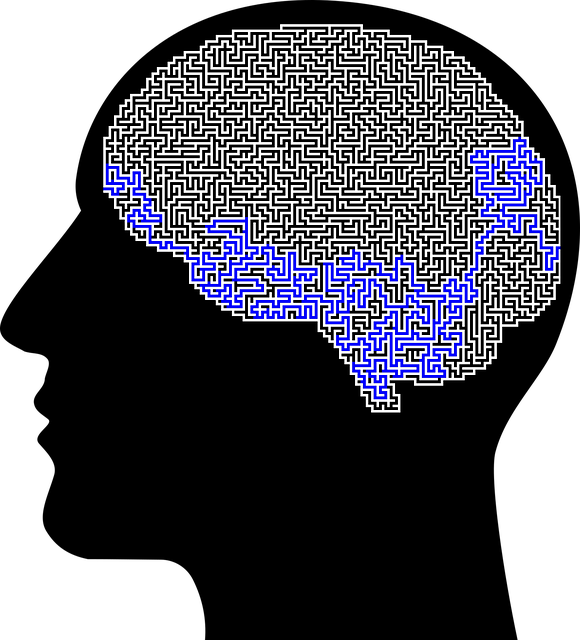Wheat Ridge Domestic Violence Therapy utilizes a meticulous process to analyze mental health data, ensuring effective coaching and tailored interventions. They collect diverse information—from clinical assessments to socio-demographic details—and employ advanced techniques to transform raw data into actionable insights. This analysis reveals patterns like stress levels, trauma histories, and coping mechanisms, enabling them to create targeted programs for self-care and resilience. By combining statistical methods with clinical expertise, they offer personalized support, enhance communication strategies, and develop prevention programs based on community needs, ultimately empowering individuals to break cycles of violence and foster resilient relationships.
Mental health data analysis is a powerful tool for understanding complex issues within our communities. This article explores the process of interpreting data, from collecting and preparing mental health information to uncovering profound trends and insights. We delve into how this analysis can drive meaningful actions, showcasing the successful application at Wheat Ridge Domestic Violence Therapy through their data-driven approach. By examining case studies, we uncover best practices that leverage data to enhance support systems and improve outcomes for those facing domestic violence.
- Understanding Mental Health Data: Collecting and Preparing the Information
- Analyzing Trends: Identifying Patterns and Insights from Data
- Interpretation and Its Impact: Drawing Meaningful Conclusions
- Wheat Ridge Domestic Violence Therapy: Case Studies and Best Practices in Data-Driven Approach
Understanding Mental Health Data: Collecting and Preparing the Information

Understanding Mental Health Data involves a meticulous process of collecting and preparing information that serves as a cornerstone for effective therapy and coaching. At Wheat Ridge Domestic Violence Therapy, we recognize the significance of comprehensive data in tailoring interventions to meet individual needs. This includes not just clinical assessments but also socio-demographic details, lifestyle factors, and historical records. By integrating these diverse sources, our experts create a holistic view, enabling them to design personalized treatment plans that address specific mental health challenges.
The preparation stage is crucial, ensuring data accuracy and consistency. This involves cleaning the datasets, handling missing values, and encoding categorical variables. Our organization, dedicated to Mental Wellness Coaching Programs Development, employs advanced techniques to transform raw data into actionable insights. Furthermore, Emotional Intelligence and Stress Management Workshops play a pivotal role in this process, as they equip individuals with coping strategies that enrich data collected during therapy sessions, fostering a supportive environment for both the client and the therapist.
Analyzing Trends: Identifying Patterns and Insights from Data

Analyzing trends within mental health data is akin to uncovering hidden stories and patterns that can guide effective interventions. By examining individual and collective experiences, professionals like those at Wheat Ridge Domestic Violence Therapy can identify recurring themes and insights. This process involves sifting through quantitative and qualitative data to unearth correlations between factors such as stress levels, trauma histories, and coping mechanisms.
Through this analysis, valuable empathy-building strategies can emerge, tailored to the specific needs of individuals or communities. For instance, understanding the prevalence of self-care routine development for better mental health among certain demographics can lead to targeted programs focused on promoting resilience and well-being. Similarly, identifying patterns related to stress management techniques can help therapists refine their approaches, ensuring interventions are both relevant and impactful in addressing contemporary mental health challenges.
Interpretation and Its Impact: Drawing Meaningful Conclusions

Interpretation plays a pivotal role in mental health data analysis as it’s where meaning is derived from raw information. By applying rigorous statistical methods and clinical expertise, practitioners can uncover insights that shed light on individual experiences and broader trends within populations. This process involves more than just numbers; it demands empathy and a nuanced understanding of human behavior. Accurate interpretation enables healthcare professionals to offer tailored interventions, like those provided by Wheat Ridge Domestic Violence Therapy, which address specific needs rather than treating symptoms in isolation.
Effective data interpretation has profound implications for both practitioners and clients. It empowers therapists to develop personalized treatment plans, leverage communication strategies such as active listening and open dialogue, and guide individuals toward better mental wellness. Additionally, it aids in identifying systemic issues within communities, prompting the development of targeted prevention programs. For instance, insights gained from analysis might highlight elevated stress levels among certain demographics, prompting initiatives focused on Stress Management and encouraging practices like Mental Wellness Journaling Exercise Guidance to foster self-awareness and resilience.
Wheat Ridge Domestic Violence Therapy: Case Studies and Best Practices in Data-Driven Approach

Wheat Ridge Domestic Violence Therapy has emerged as a beacon of hope for individuals and families facing domestic violence. By adopting a data-driven approach, therapists in this setting utilize robust mental health data analysis to gain insights into client experiences, identify patterns, and tailor interventions accordingly. This strategy not only enhances the efficacy of therapy but also ensures that support is tailored to meet the unique needs of each individual and family dynamic.
Through case studies, it’s evident that the integration of crisis intervention guidance, conflict resolution techniques, and empathy building strategies significantly contributes to positive outcomes. By leveraging data analysis, therapists can proactively address recurring issues, modify treatment plans, and ultimately foster healthier relationships. This evidence-based methodology not only supports immediate crises but also equips individuals with long-term coping mechanisms, empowering them to break free from cycles of violence and build resilient, nurturing environments.
Mental health data analysis is a powerful tool for understanding complex issues, as demonstrated by the successful applications at Wheat Ridge Domestic Violence Therapy. By carefully collecting, analyzing, and interpreting data, professionals can identify trends, develop insights, and make informed decisions to improve outcomes. This evidence-based approach allows for tailored interventions, fostering better mental well-being among individuals and communities. Through case studies and best practices shared in this article, we hope to encourage the responsible use of data analysis to revolutionize mental health support.













